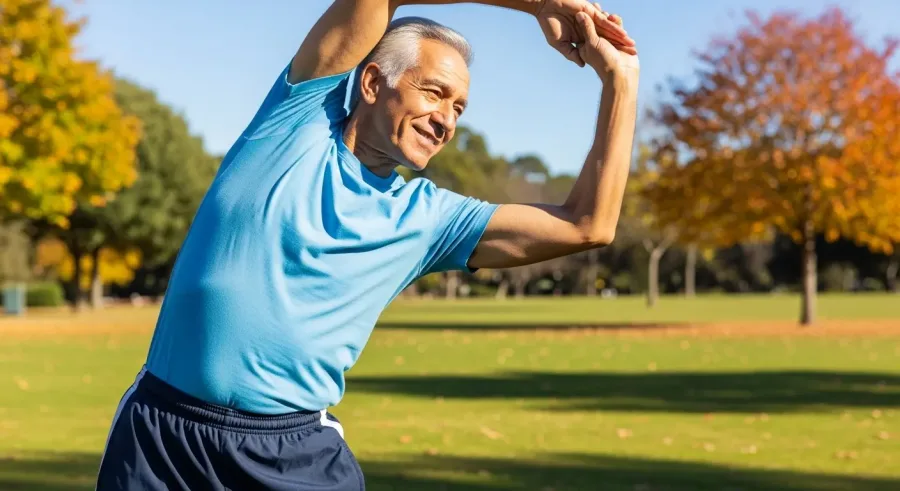
What exercises should seniors avoid? 5 Examples
Growing older means knowing which exercises to skip; discover five risky moves seniors should avoid to stay safe and healthy.
Mobility exercises are essential for seniors who want to maintain their health, independence, and quality of life. As we age, our bodies naturally become stiffer, and our range of motion can shrink, making everyday tasks more challenging. That’s where mobility exercises come in, they help improve flexibility, balance, and overall physical function, making daily activities easier and safer.

As we age, staying active becomes more important than ever, and mobility exercises are a fantastic way for seniors to boost their overall health. Mobility exercises help improve balance, making it easier to prevent falls and stay steady on your feet. They also increase joint flexibility, which supports everyday movements and keeps you feeling independent.
Regularly including mobility exercises in your routine promotes better circulation and strengthens muscles, which enhances your ability to perform daily tasks with ease. Whether you prefer simple at-home exercises or guided sessions at the gym, focusing on mobility can lead to a more vibrant and active lifestyle.
Maintaining good mobility is essential for seniors who want to stay active and independent. However, many seniors face common mobility challenges that can make daily movement more difficult. These include joint stiffness, which reduces flexibility, and balance issues that increase the risk of falls. These challenges often come from natural aging changes in muscles and joints.
The good news is that with the right fitness tips and workout plans, seniors can improve their mobility and regain confidence in their movement. Gentle exercises focused on flexibility, strength, and balance can help reduce joint stiffness and improve stability.
Incorporating simple at-home training routines or light gym workouts can make a big difference. Remember, consistency is key. Building a regular fitness routine tailored to your needs supports better mobility and keeps you feeling strong and independent.
Pairing exercise with healthy eating habits also fuels your body for better performance and recovery. By understanding these common mobility challenges and taking practical steps to address them, seniors can enjoy a more active lifestyle and maintain their freedom longer.
Stay motivated, listen to your body, and celebrate every small progress on your fitness journey!
Improving mobility is essential for older adults who want to maintain independence and enjoy daily activities with ease. Mobility exercises that focus on flexibility, strength, and balance are key to achieving this goal without causing strain or discomfort. Here’s a simple guide to the best types of mobility exercises suitable for older adults that you can easily include in your fitness routine.
Flexibility exercises help increase your joint range of motion, making everyday movements smoother and less painful. Gentle stretching and beginner-friendly yoga poses are excellent choices.
These exercises not only improve flexibility but also promote relaxation and reduce stiffness. Try dedicating 10–15 minutes a day to stretches that target your shoulders, hips, and legs.
Balance is crucial for older adults to prevent falls and maintain stability. Simple balance exercises like heel-to-toe walking, standing on one foot, or using a sturdy chair for support can make a big difference.
Practicing balance exercises regularly improves coordination and builds confidence, helping you feel steadier on your feet.
Strength exercises complement flexibility and balance by supporting your muscles and joints. Incorporate light resistance training using body weight, resistance bands, or light dumbbells.
Focus on exercises that target your legs, core, and arms to enhance overall mobility and independence.
Incorporating mobility exercises into your daily routine is a powerful way to boost flexibility, reduce stiffness, and support overall fitness. By making mobility exercises a regular part of your day, you set yourself up for long-term success and improved movement. Here are some simple, effective tips to help you include mobility exercises naturally and consistently.
1. Schedule your mobility exercises
Treat mobility exercises like any important appointment. Pick a consistent time each day, such as morning or evening, to practice. Aligning these exercises with your existing habits, like right after waking up or before bed, makes it easier to stick with them.
2. Use reminders to stay on track
Set alarms or calendar alerts as friendly nudges to complete your mobility routine. Pair exercises with daily activities, like stretching during TV commercials or while waiting for your coffee to brew. These small habits build consistency without taking extra time.
3. Keep it simple and enjoyable
Choose mobility exercises that feel good and suit your fitness level. Whether it’s gentle hip circles, shoulder rolls, or ankle stretches, find movements you enjoy so you look forward to doing them every day.
4. Track your progress
Keep a simple journal or use an app to note how often you do your mobility exercises and any improvements you notice. Tracking progress can motivate you to stay consistent and celebrate your gains.
Remember, the key to success is making mobility exercises a natural and enjoyable part of your daily routine. By following these tips, you’ll enhance your flexibility, support joint health, and create a strong foundation for all your fitness goals.
Start today and feel the difference that daily mobility exercises can make!
Incorporating mobility exercises into your routine is a powerful way for seniors to enhance fitness, boost confidence, and enjoy a more active lifestyle. Remember, improving mobility isn’t just about exercise, it’s about reclaiming freedom and staying connected to the activities and people you love. Start small, stay consistent, and feel the positive changes unfold!

Growing older means knowing which exercises to skip; discover five risky moves seniors should avoid to stay safe and healthy.

Jumpstart your strength training by syncing workouts with your menstrual cycle—discover the surprising benefits that await when you train with your body’s rhythm.

Get the best techniques to stretch your knee effectively and safely, improving flexibility and preventing injury—discover the key moves you shouldn’t miss.

Learn how stretching before exercise boosts performance and prevents injuries, unlocking benefits you might be missing out on. Discover the key reasons now.

The ultimate guide reveals essential techniques and tips to prevent injuries—discover how simple changes can protect your body and enhance your performance today.

Wondering if stretching after working out is truly mandatory? Discover the surprising benefits and expert insights that might change your routine forever.